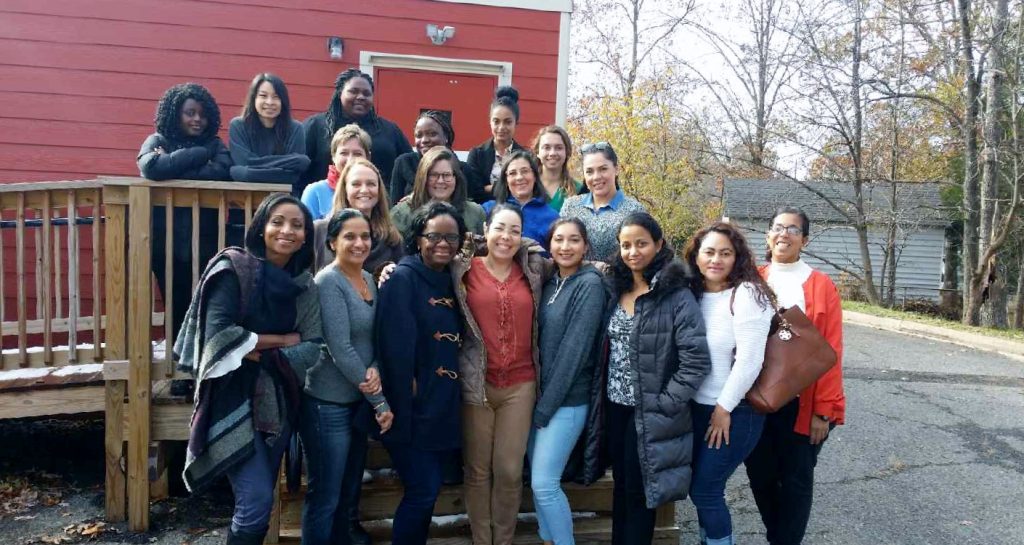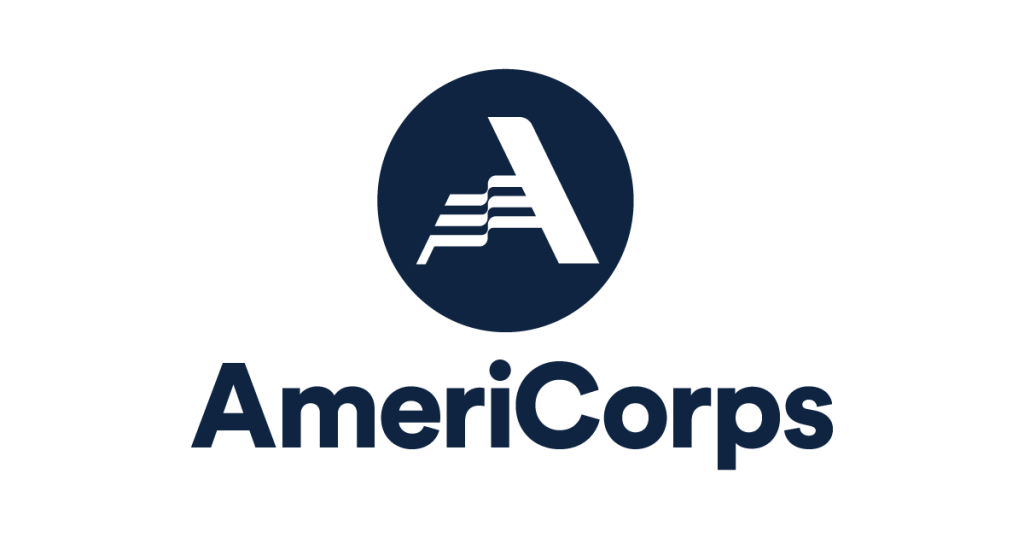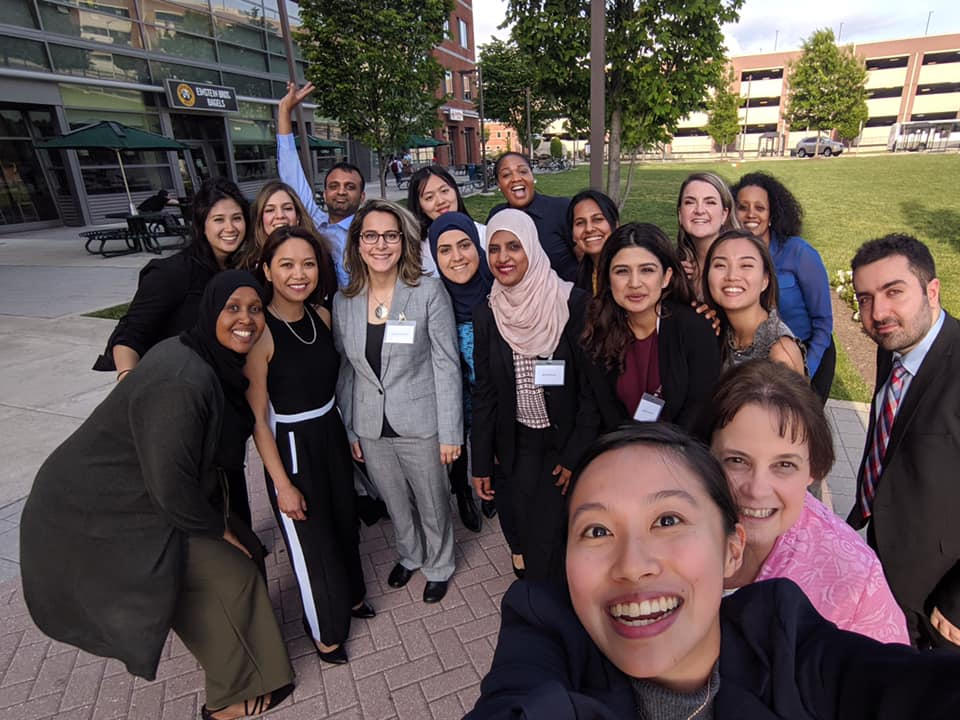Mason Data and Technology Driven Public Health AmeriCorps Training Program
George Mason University announces open membership applications for its new Data and Technology Driven Public Health AmeriCorps Training Program. This program is in conjunction with the Public Health AmeriCorps training initiative. Applications are open beginning August 15 and will remain open until filled.

Member Duties and Program Description
The program partners with health departments, nonprofits, and community-based organizations to improve health and social care connections making them better prepared for public health careers. Advancing a community’s health must be local and tailored, requiring new ways of addressing equitable access to care. The Public health Informatics field has been dynamically growing over the past decades. The added lessons learned from the recent COVID-19 pandemic have highlighted the widespread health inequities and inadequacies in public health informatics infrastructure (human and technical). Public Health Informatics is not simply the application of computers in public health. Still, it requires a deep understanding of nuances within information systems and data, the need to be embedded in the communities we serve, and the efforts of state and local health departments and their community partners to improve health for all.
Program Benefits and Work Schedules
During this 1-year program, you will be provided enhanced public health training and guidance and support on career pathways through our Life After AmeriCorps training modules. This is in addition to the onsite training Public Health AmeriCorps members will receive from George Mason University. Members will provide services for underserved populations during a 12-month fellowship which will include 15 hours a week of direct program work and 2.5 hours a week of classroom learning for a total of 900 hours. You will learn to identify and capture the data, stratify patients’ risk levels within various categories (social need, chronic disease, mental and substance abuse risk, etc.), and connect patients to appropriate specialty health and social service, partners. As you gain experience, you will have the opportunity for increasingly complex informatics-specific tasks from data collection to data organization, modeling, and analytics focused on specific task outcomes; collecting of individual-level high-needs patients’ data; and social media data mining.
Members will provide services for underserved populations during a 12-month fellowship which will include 15 hours a week of direct program work and 2.5 hours a week of classroom learning for a total of 900 hours.

About AmeriCorps
AmeriCorps, the federal agency for volunteerism and national service, provides opportunities for Americans to serve their country domestically, address the nation’s most pressing challenges, improve lives and communities, and strengthen civic engagement. The agency places more than 250,000 AmeriCorps members and AmeriCorps Seniors volunteers in intensive service roles each year. It empowers millions to serve as long-term, short-term, or one-time volunteers. Learn more at AmeriCorps.gov.
About Public Health AmeriCorps
AmeriCorps and the Centers for Disease Control and Prevention joined forces to launch Public Health AmeriCorps and support the recruitment, training, and development of the next generation of public health leaders ready to respond to the nation’s public health needs. The COVID-19 pandemic has underscored the urgent need to further enhance public health resources across the country. This effort starts with investing in a future workforce to help local communities respond to and recover from COVID-19. Public Health AmeriCorps has two main goals:
- Address public health needs of local communities by providing support in state and local public health settings and advancing more equitable health outcomes for underserved communities.
- Create pathways to quality public health-related careers through onsite experience and training, focusing on recruiting AmeriCorps members who reflect the communities in which they will serve.
This can be a stepping stone to permanent jobs in the public health field!
Please complete the initial screening application at: https://forms.gle/qcUFzq3ZQHC4Zz8p9. Please note, that if accepted, there will be a secondary application and onboarding process in conjunction with the AmeriCorps organization.
For questions and general inquiries, please email PHIT@gmu.edu.
Member Program
Required Training

Programs are responsible for ensuring that members are provided with the following mandatory training during the program year:
- Orientation
- Conflict Resolution
- Diversity & Cultural Awareness
- Sexual Harassment & Ethics
- Civic Engagement
- Teamwork & Leadership
In addition, the following training courses are highly recommended for relevance to member development:
- Wellness and Stress Management. Preparing individuals for the stressors that can result from service.
- Life Skills/Money Management. Some members will be challenged by living on a limited stipend and will need tips for budgeting.
- Career Building. Creating a portfolio, including a resume, cover letter writing, and interviewing.
- Basic First Aid/CPR. The American Red Cross can help provide a local trainer to prepare members for emergencies.
Member Benefits
- A tour of the agency and program host sites
- Inspiration — service is inspiring, and understanding the role that inspiration plays can help make the year a success. Refer to the Member Management Resources page for examples.
- A reflection on each member’s reasons for choosing service
- Member self-assessment — allows you to understand the skills sets and challenges of each member and allows members to set goals for their development
- Assurances from CNCS
- Placement site orientation
- Orientation to the community. Refer to the Member Management Resources page for suggestions.
- Performance measures
PHIT at Mason Program Overview
Members will provide services for underserved populations during a 12-month fellowship which will include: 15 hours/week x 52 weeks of direct program work = 775 hours and 2.5 hours/week x 50 weeks in didactic learning= 125 hours for a total of 900 hours.

Exposure and Immersion
All members spend time at the Mason and Partners (MAP) Clinics for 20 weeks.
Ten modules (one module every two weeks)
- Module 1- Introduction to the program (touring clinics, meeting staff, etc.)
- Module 2- Exploring the Data (Practice Fusion and other data sources)
- Module 3- MAP Specific Data Project
- Module 4- Collecting the Data (Red Cap, Qualtrics, Practice Fusion)
- Module 5- MAP Specific Data Project
- Module 6- MAP Specific Data Project
- Module 7- Extracting the Data
- Module 8-Data Visualization (Excel, Tableau, etc.)
- Module 9- MAP Specific Data Project
- Module 10- Closing the projects
Competency
Six teams of five at a partner organization for 30 weeks.
Partner Organizations:
- Prince William Health Department (Suburban-Rural)
- NVFS (Social Determinant of Health non-profit)
- Prince William Adult Detention Center (Criminal Justice)
- RAP RAP Health Department (Rural)
- Private-Public Partner
